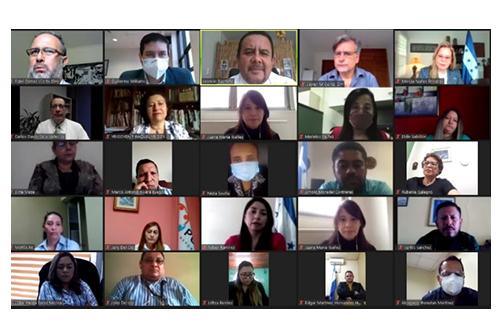
San José, Costa Rica, December 4, 2020.-Today the Vice President of the Inter-American Court of Human Rights, Judge Patricio Pazmiño Freire, closed a Course in Honduras on “Rights of indigenous and tribal peoples in the case law of the I/A Court H.R.,” that took place from November 30 to December 4 over the videoconferencing platform of the “Francisco Salomón Jiménez Castro” judicial training academy. The Course was attended by over 78 judicial officers, including judges, public prosecutors and staff from the State’s Attorney of the Republic of Honduras.
The Court Vice President emphasized the importance of creating openings for dialog and discussion of jurisprudential standards between the Inter-American Court and institutions for the administration of justice. Participants in the closing ceremony also included the assistant State’s Attorney of Honduras, Marcia Núñez Ennabe, the director of the “Orlan Arturo Chávez” training academy of the office of the Public Prosecutor, and on behalf of the judicial training academy of Honduras, attorney Guillermo Federico Williams.
The Course was taught by Juana María Ibáñez Rivas and Raquel Yrigoyen Fajardo, who discussed issues including judicial review based on the Convention, interpretation of the American Convention in cases of indigenous and tribal peoples, rights to collective land ownership, the right to prior and informed consultation, access to justice, the right to a decent life for indigenous and tribal peoples, legal pluralism, and other important subjects in this field.
The training program is part of the project “Strengthening Human Rights Protection and the Rule of Law through Jurisprudential Dialog, Capacity Building and Enforcement of the Judgments of the Inter-American Court of Human Rights in El Salvador, Guatemala and Honduras,” that the Inter-American Court is conducting with support from the Swiss Agency for Development and Cooperation (COSUDE) and the Honduran “Francisco Salomón Jiménez Castro” judicial training academy.